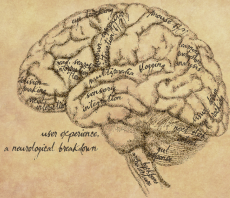
Psychology, to many, is seen as one of the most fascinating subjects. Is this because, egotistically, we like to study ourselves most of all, or is it that we like to impress others so much, that we learn about psychology in order to tell them things about themselves that even they didn’t already know. Indeed, the nature of our love for psychology is in itself a psychological question mark.
Of course, I’ll admit to some bias in this, since I study the subject for my degree, but there is certainly something about the subject that interests everyone, and that everyone can relate to. So let’s take a brief look at what it’s actually all about, and why it’s so useful to society.
So, firstly, what is psychology? Most scientists accept the definition of the subject as ‘the scientific study of the mind and behaviour’. It covers many different topics such as sensory perception, neuroscience, social psychology, cognitive processing, personality, and psychological development, to name but a few. It can be used both for personal improvement, such as increasing memory potential, as well as for large scale sociological understanding, for example, by understanding childhood development, we can design better education strategies. I’ll discuss foundations of the subject more at another time, but now I’ll briefly outline some well-known studies, just to get you interested.
One of my favourite studies is by Simons and Levin (1998) which showed that we are much worse than we think at detecting changes in our environment. In this study, a man would walk up to people on a university campus to ask for directions. Midway through the conversation, two men carrying a door would move between the people. At this point, the man asking for directions would switch with another man. When the door moved again, only around half of the participants noticed that the man had changed. If you are interested, there are many good videos of this sort of change blindness experiment on YouTube.
A social study which had interesting results, is Rosenthal’s 1963 study on the power of labels. In this study, he gave students in a school a general ability test. He then told the teachers that some students in the class did better, describing them as ‘bloomers’. He had in fact selected these individual’s randomly, and they had shown no extra potential whatsoever. Upon return to the school some time later, he retested the students, and found that those he’d selected as ’bloomers’ achieved higher on the test. He believed that because the teachers expected more of the pupils, they ended up performing better, probably because the teachers unconsciously gave them more support or greater reinforcement for their work. This is now described as the Pygmalion effect.
Hopefully that brief introduction to the world of Psychology has made you want to go away and learn more, since the scope of the subject is just so broad, and I really couldn’t cover even a fraction of what is out there. There are a lot of great resources and videos online about the subject, and I intend to write further articles on it as well, starting with the Foundations of Psychology, so check back soon. Also the subject is still young, and there are so many exciting discoveries still to be made. Who knows? Maybe you could even make one of them!
Image from: http://uxtraordinary.com/imagery/portfolio/ux-mapped-brain-medium.jpg

0 Comment:
Be the first one to comment on this article.